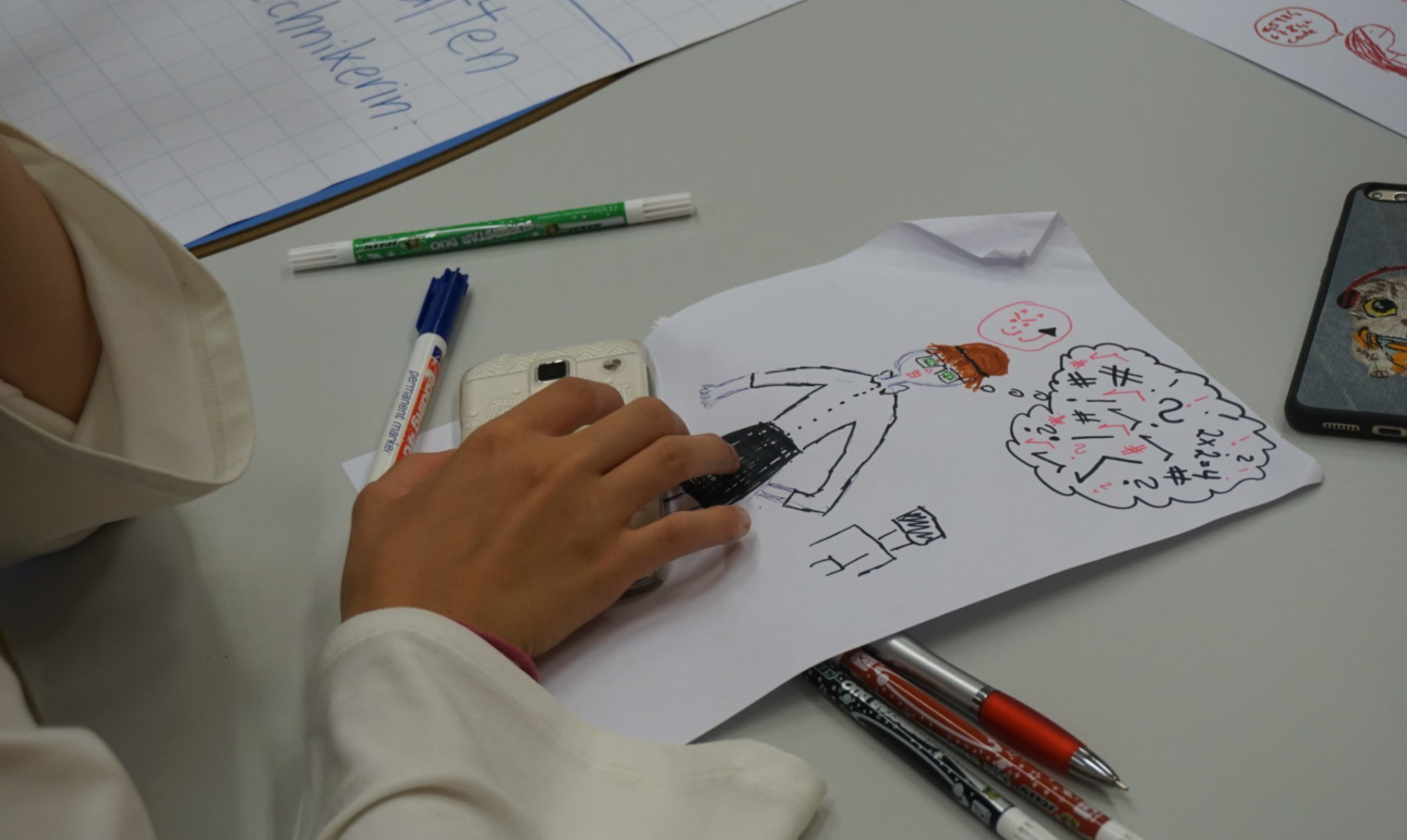How to cite: Trütsch, J., Meyer-Baron, L., & Spieler, B. (2025). IMPACT: Informative Mini-Games for Programmingconcepts and Computational Thinking. Entwicklung eines Unplugged-Programmierspiels für die 4. Klasse. Zwischenbericht. Pädagogische Hochschule Zürich. https://doi.org/10.5281/zenodo.15230186
Continue reading “[GERMAN] IMPACT: Informative Mini-Games for Programmingconcepts and Computational Thinking. Entwicklung eines Unplugged-Programmierspiels für die 4. Klasse. (Zwischenbericht)”ComeThinkAgain – COMputational andEntrepreneurship THINKing And GreenAgenda INnovations
How to cite: Burgsteiner, H., Spieler, B., Kandlhofer, M., & Bieber, R. (2024). ComeThinkAgain – Computational and Entrepreneurship Thinking and Green Agenda Innovations. In Proceedings of the 1st International Conference on Digital Skills and IT Professionalism (pp. 68–69). https://doi.org/10.5281/zenodo.14194730
Continue reading “ComeThinkAgain – COMputational andEntrepreneurship THINKing And GreenAgenda INnovations”[German] Computational Thinking: Synergien mit Entrepreneurship und Green Skills
How to cite: Spieler, B. (2024). Computational Thinking: Synergien mit Entrepreneurship und Green Skills. OCG Journal: ZukunftsCode, 48(4), 5–7. Link: https://www.yumpu.com/de/document/read/69160861/ocg-journal-zukunftscode
Continue reading “[German] Computational Thinking: Synergien mit Entrepreneurship und Green Skills”From Consoles to Classrooms: Preliminary Insights About Pre-Service Teachers and Video Games
How to cite: Babazadeh, M., Degonda, A., Spieler, B., & Botturi, L. (2024). From consoles to classrooms: Preliminary insights about pre-service teachers and video games. In P. Kommers & A. J. Mendes (Eds.), Proceedings of the 17th European Conference on Games Based Learning (pp. 79-88). Academic Conferences International Limited.
Link: https://papers.academic-conferences.org/index.php/ecgbl/article/view/2730/2521
Continue reading “From Consoles to Classrooms: Preliminary Insights About Pre-Service Teachers and Video Games”Making at School: Experiences from the Design-Based Research Project
How to cite: Spieler, B., & Schifferle, T. M. (2024). Making at School: Experiences from the Design-Based Research Project. In Proceedings of Constructionism & FabLearn 2023 (p. 338). Carnegie Mellon University. 10.57862/jfps-mb68
Continue reading “Making at School: Experiences from the Design-Based Research Project”[German] Von Algorithmen zu Öko-Innovationen: Computational Thinking, Entrepreneurship, Green Skills
How to cite: Kandlhofer, M., Spieler, B., & Burgsteiner, H. (2024). Von Algorithmen zu Öko-Innovationen: Computational Thinking, Entrepreneurship, Green Skills. In Gesellschaft für Informatik e.V. (GI) (Hrsg.), Jahresbericht 2024 (S. 54).
Link: https://gi.de/fileadmin/GI/Hauptseite/Service/Publikationen/Jahresbericht2024_220824.pdf
Continue reading “[German] Von Algorithmen zu Öko-Innovationen: Computational Thinking, Entrepreneurship, Green Skills”Designing, Coding and Embroidering
A Workflow for Gender-Sensitive and Interdisciplinary Teaching
How to cite: Spieler, B., Gursch, S., Krnjic, V., Horneck, K., & Slany, W. (2024). Designing, Coding and Embroidering: A Workflow for Gender-Sensitive and Interdisciplinary Teaching. International Journal of Emerging Technologies in Learning (iJET), 19(06), pp. 79–104. https://doi.org/10.3991/ijet.v19i06.48591
Continue reading “Designing, Coding and Embroidering”[German] Vergleich der Informatikausbildung für angehende Primar- und Sekundarlehrpersonen an Deutsch-schweizer Pädagogischen Hochschulen.
Zitierhinweis: Meyer-Baron, Larissa, Adrian Degonda, Bernadette Spieler u. Thomas Schmalfeldt. 2024. Vergleich der Informatikausbildung für angehende Primar- und Sekundarlehrpersonen an Deutsch-schweizer Pädagogischen Hochschulen. Zürich: Pädagogische Hochschule Zürich. https://doi.org/10.5281/zenodo.11468166
Continue reading “[German] Vergleich der Informatikausbildung für angehende Primar- und Sekundarlehrpersonen an Deutsch-schweizer Pädagogischen Hochschulen.”[German] Fokus auf Lösungsstrategien
Zitierhinweis: Bernadette Spieler (2024) Fokus auf Lösungsstrategien. In: Wirksamer Informatikunterricht. Hrsg. von Dennis Komm. Schneider Verlag Hohengehren, 2024, SBN: 978-3-8340-2243-1.
Link: https://paedagogik.de/alle-anzeigen-fachdidaktik/product/wirksamer-informatikunterricht-4011/
[German] ‹Making im Unterricht›Erfahrungen von Lehrpersonen aus dem Design-Based-Research-Projekt
Zitationshinweis: Spieler, Bernadette, Tobias M. Schifferle, und Manuela Dahinden. 2024. „‹Making Im Unterricht›: Erfahrungen Von Lehrpersonen Aus Dem Design-Based-Research-Projekt“. MedienPädagogik: Zeitschrift für Theorie Und Praxis Der Medienbildung 56 (Making & more):331-63. https://doi.org/10.21240/mpaed/56/2024.02.14.X.
Continue reading “[German] ‹Making im Unterricht›Erfahrungen von Lehrpersonen aus dem Design-Based-Research-Projekt”